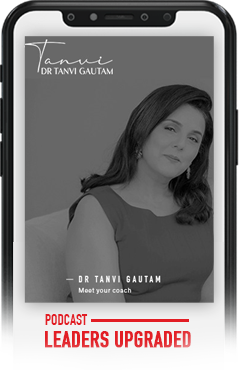

The 3 Types of Freedom You Need to Feel Rested
Rest and recovery are topics that will dominate our world for a long time to come. As we emerge from the fog of the pandemic, there’s a looming uncertainty about where and when the next collapse might come from.
The majority of people were confined to working from home, and while it may have seemed like a break, we all know that it was anything but a vacation. As we return to the workforce outside of our homes, we feel a mental, emotional, physical, and even financial drain. In these circumstances, the traditional advice of sleeping more, eating well, and going outside for a ‘mental health walk’ falls short sometimes.
Despite partaking in self-care activities that would normally leave us feeling refreshed, we are finding that the shadow of exhaustion will not leave us. What’s going on?
If you found yourself nodding your head to the above description, then you’ll want to ponder what I have to say. In this blog post, I will be sharing the 3 different types of freedoms you need to feel truly rested and recovered. Try them on for size and see what resonates with you. Our circumstances are unique, and experimenting with these freedoms may help you emerge stronger.
Freedom from Problem Solving
Some days you may feel like Neo from the movie, The Matrix. You’re constantly trying to dodge the onslaught of bullets from the other side. For you, some those bullets may look like…
- Scheduling and rescheduling meetings with back and forth emails
- Business proposals that need negotiations and clarification despite best intentions
- Financial woes of a partner having lost their job or extra and unexpected caregiving burdens.
- Worrying about upcoming work related travel and the associated anxieties of meeting crowds, getting sick while on work or missing paperwork for entry into the country.
If every day looks like this and your mind is constantly in problem-solving mode, you will experience a high level of cognitive fatigue. Going for a walk won’t clear your mind because problem-solving mode can quickly give way to obsessive and intrusive thoughts about the long list of things not done yet.
I try to remind my clients that work never finishes, we do. Know when to say no. If you decide that 7 pm is the end of your problem-solving day, all the unresolved problems must be saved for another day. Not all problems are algorithmic, in that there is a clear solution or a mathematical rule to apply to solve it. Particularly as you rise higher in the ladder, the number of judgement calls you have to take may be anxiety inducing or require looking out for a shifting landscape. So give yourself the space and time to actually solve this problem rather than going hard at it because higher effort will not always result in a solution, as much as simmering it within a timeline before arriving at a conclusion. Burning the mid night oil is detrimental to such problem solving.
If however the problems are solving are algorithmic, routine and repetitive I do have another tip that I like to share. Create a Rule Book of Escalation. If you notice that you are dealing with the same problems over and over with your team, there may be an underlying issue. Maybe they’re not feeling empowered, or they don’t have the resources you do. Equip your rule book with a set of ‘if this, then that’ to help them navigate common problems. You can even save scripted replies in your email to copy and paste when situations arise. Auto responder emails with common redirections can save you a lot of time and mental hassle if you are finding the same issues cropping up gaina and again.
Most importantly, do not solve problems that do not concern you. People will try to recruit you into their problem-solving matter, and while it may give you a great sense of pride, it comes at the cost of cognitive overload. And no amount of sleep or nutrition will solve that issue. Learning to lessen our cognitive overload by finding a plan for routine vs. non routine problem solving and being very clear on our boundaries on what is ours to solve and ours to escalate is crucial for a rested mind.
Freedom to Explore
Let’s face it, life during the pandemic has become fairly regimented, with little space to deviate from the norm. Inability to travel, inability to take an extended holiday or check out a new restaurant. The simple explorations we enjoy have been restricted. Human beings are communal and exploratory by nature – we enjoy novelty and creativity to fill our buckets.
How many of you check emails or catch up on work during public holidays? You’re certainly not alone, but that means there are too many of you out there not giving yourself the time or freedom to explore more. The trick then is to introduce novelty and variety in smaller doses. I’m not asking you to start baking sourdough bread, although if that tickles your fancy, go for it. Try simple tasks like…
- Rearranging your desk to face a different direction. Or if you can’t change the direction change the picture, the plant, the curtain, the colour of the wall. Change
Something or anything at all and see the difference it will make. - Learning a new language forces us to explore a different world all together. And with the rise of new langauge apps this could be a fun activity for your entire team to take up or a game of skill within your home. As long as it brings excitement and a break from normal it will be a welcome change.
- Ordering a box of paints when you haven’t done art since kindergarten is a great way to introduce novelty at however small a scale. If as a child you enjoyed beads maybe try taking that up. Again the idea is the same, break the routine !
Although small, they can spark a sense of novelty. Try new things outside of work, explore your passions and find little freedoms every day. The only thing to be mindful of is not to let the pursuit of novelty become a chore in its own right.
Freedom From Internal Chatter
If cognitive capacity is about freedom from problem solving and creativity breaks are about novelty then there is still another type of freedom that you may need. One that is no so externally driven or even obvious at first site. This is the inner dialgue or conversation you maybe having with yourself as you navigate the stress of the world around you. There are 2 ways of responding, one which actually builds us up and creates capacity but the second one, the one you need freedom from is the constant negative chatter that can exist inside your head.
This is more of a tendency of perfectionists, people-pleasers, or those who are self-vigilant regarding how the world will see them and how their actions will be judged. Naturally, we as humans do what I like to call self-editing. It’s the personal adjustments we make to get along with people and present ourselves in a manner we think will win us friends. But remember, if you are over censoring your thoughts or are being overly self-critical of yourself then this type of internal chatter can be a constant drain on your energy.
The worst part of this is that there is nowhere to escape your internal chatter. No matter where you go, it follows you in different ways. Here are some scenarios that I commonly encounter while coaching my clients and what I suggest to them to get rid of the internal chatter:
- If you tend to constantly judge yourself through the lens of others and their past responses to your behaviour, try joining or finding a new group of people to befriend. With the absence of history with a group of people you may finally grant yourself greater freedom to be yourself and pursue authentic self expression. This is as true of workgroups as personal ones. .
- Stop judging yourself harshly on your performance under pressure. Being satisfied with having giving it your best shot is about focussing on the process and not just outcome. Simon Sinek is quoted for saying there is a difference between losing and failure. The former is about points, the latter is about attitude. Know the difference. Scores can always change but the attitude of self compassion will carry us through much further.
- Overstressing about an upcoming presentation and deciding that it is going to be as bad as the previous one or comparing yourself to the rockstart presenter in the team will most certainly end up being a self fulfilling prophecy. Instead ask yourself what 3 things you can do to increase the chances of a better outcome. Thereby repurposing that negative energy towards building something more constructive and increasing the chance of a more favourable outcome.
We all need a compassionate ear to break us out of the internal chatter now and again until we learn to give ourselves compassion. Sometimes, a therapist can help explore where these tendencies come from and why they hold us back so much. Much like the other freedoms, exhaustion resulting from this hypervigilance will simply not be cured by sleeping, walking or nutrition.
Are There More Freedoms?
Of course, there are. What do you think are other types of freedom we need to feel more rested? How can you incorporate them into your daily life? Share your thoughts with me, and let’s open up a discussion. After all, it’s something we can all benefit from.
For now, remember this article the next time you’re feeling drained and think about the 3 freedoms you need to feel rested, freedom from problem-solving, freedom to explore and freedom from internal chatter. Rest requires us to go beyond the physical now and explore the freedoms that engage our compassionate selves that does not nag and critcise us for effort and outcome. We often forget about these parts of ourselves, but even these parts of can make us feel exhausted and traditional rest and recovery methods are just not sufficient. Tell me what approaches you plan to try and what has worked for you in the past so we can all learn and grow together.
Take this short quiz to find out if your career is a sinking ship?
Subscribe our newsletter to upgrade your leadership, life and career
Leaders upgraded podcast
The top names in leadership share their insights and advice for you










